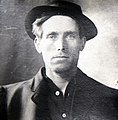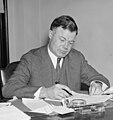
Introduction

- In trade unions, workers campaign for higher wages, better working conditions and fair treatment from their employers, and through the implementation of labour laws, from their governments. They do this through collective bargaining, sectoral bargaining, and when needed, strike action. In some countries, co-determination gives representatives of workers seats on the board of directors of their employers.
- Political parties representing the interests of workers campaign for labour rights, social security and the welfare state. They are usually called a labour party (in English-speaking countries), a social democratic party (in Germanic and Slavic countries), a socialist party (in Romance countries), or sometimes a workers' party.
- Though historically less prominent, the cooperative movement campaigns to replace capitalist ownership of the economy with worker cooperatives, consumer cooperatives, and other types of cooperative ownership. This is related to the concept of economic democracy.
The labour movement developed as a response to capitalism and the Industrial Revolution of the late 18th and early 19th centuries, at about the same time as socialism. The early goals of the movement were the right to unionise, the right to vote, democracy and the 40-hour week. As these were achieved in many of the advanced economies of western Europe and north America in the early decades of the 20th century, the labour movement expanded to issues of welfare and social insurance, wealth distribution and income distribution, public services like health care and education, social housing and common ownership. (Full article...)
Selected article
The American Federation of Labor and Congress of Industrial Organizations (AFL-CIO) is a national trade union center that is the largest federation of unions in the United States. It is made up of 60 national and international unions, together representing more than 12 million active and retired workers. The AFL-CIO engages in substantial political spending and activism, typically in support of progressive and pro-labor policies.
The AFL-CIO was formed in 1955 when the American Federation of Labor and the Congress of Industrial Organizations merged after a long estrangement. Union membership in the US peaked in 1979, when the AFL-CIO's affiliated unions had nearly twenty million members. From 1955 until 2005, the AFL-CIO's member unions represented nearly all unionized workers in the United States. Several large unions split away from AFL-CIO and formed the rival Change to Win Federation in 2005, although a number of those unions have since re-affiliated, and many locals of Change to Win are either part of or work with their local central labor councils. The largest unions currently in the AFL-CIO are the American Federation of Teachers (AFT) with approximately 1.7 million members, American Federation of State, County and Municipal Employees (AFSCME), with approximately 1.4 million members, and United Food and Commercial Workers with 1.2 million members. (Full article...)
November in Labor History
Significant dates in labour history.
- November 01 - Malbone Street Wreck occurs on the first day of the BLE strike in 1918 in the U.S.; the first congress of the International Trade Union Confederation is held; the International Harvester strike of 1979–80 began
- November 02 - Brian Behan died
- November 03 - Nathan Feinsinger died; the U.S. Supreme Court decided Marquez v. Screen Actors Guild Inc.; Dennis McDermott was born
- November 04 - Tomasz Arciszewski was born; James Green was born
- November 05 - Eugene V. Debs was born; Nimrod Workman was born; Agustín Tosco died; the 2007 Writers Guild of America strike began
- November 06 - Lloyd McBride died
- November 08 - Ed Boyce was born; the 1892 New Orleans general strike began
- November 09 - Congress of Industrial Organizations founded in the U.S.; Philip Murray died; Danny Greene was born; the Chicago Federation of Labor is founded
- November 11 - Centralia massacre occurs in the U.S.
- November 12 - Bituminous coal strike of 1974 begins in the U.S.; the Democratic Confederation of San Marino Workers is formed
- November 13 - The UK firefighter dispute 2002–03 begins; Karen Silkwood died; the International Typographical Union begins publishing the Green Bay News-Chronicle during a strike
- November 14 - The High Court of Australia issues its ruling in New South Wales v Commonwealth, upholding the validity of WorkChoices; Daniel J. Tobin died; the 2007 German national rail strike began
- November 15 - Federation of Organized Trades and Labor Unions founded in the U.S.; Raymond McKay was born
- November 16 - Jean Maitron died; the Jamaica Association of Local Government Officers is founded; Georges Marchais died
- November 17 - Harold J. Gibbons died
- November 18 - Chris Watson died
- November 19 - William J. McCarthy died; Joe Hill is executed; the National Writers Union is formed
- November 20 - Giles Hart was born; Richard Cordtz died
- November 21 - William Green died; the Columbine Mine massacre occurred in 1927 in the U.S.
- November 22 - David McDonald was born; Philip Murray is elected president of the CIO
- November 23 - Harry Van Arsdale, Jr. died
- November 24 - Charles Millard died
- November 25 - George Mock died; the 2006 Progressive Enterprises dispute begins in New Zealand; Ted Saskin becomes executive director of the NHLPA in 2005
- November 26 - The National Confederation of the Trade-Union Organizations of Ukraine is formed; Nimrod Workman died; Eliot V. Elliott died
- November 27 - Donald Richberg died
- November 28 - The U.S. Supreme Court decides Eastern Associated Coal Corp. v. United Mine Workers of America; André Morell died; William McFetridge was born
- November 29 - John P. Frey died
- November 30 - Mary Harris "Mother" Jones died; the General Federation of Trade Unions of Korea is formed
More Did you know (auto-generated)
- ... that a number of bus drivers who participated in a strike were unaware that it was illegally held?
- ... that in 1977, Appalachian folk singer Phyllis Boyens performed at a Christmas benefit concert to support Kentucky coal miners who had been on strike for 17 months?
- ... that on February 3, 1986, African Independence Party leaders Adama Touré and Adama Touré were released from detention?
- ... that "The Strike" (1954), about an American officer's turmoil in ordering an air strike on his own men, was rated as Rod Serling's best script he had written to date?
- ... that the 2016 Jim Beam strike was the first labor strike in the company's history?
- ... that the murder of Luisa Lallana sparked a general strike in Rosario, Argentina?
Related Portals
Selected image
Selected Quote
"I would rather sit with the rural poor, the desperate children of urban blight, the victims of racism, and working people seeking a better life than with those whose religion is the status quo, whose goal is profit and whose hearts are cold."
|
— Douglas Fraser |
Did you know
- ...that the Dutch National Labor Secretariat once lost many members because each union received one vote but had to pay dues for each member, severely disadvantaging larger unions?
- ...that lobbying by the International Seamen's Union led to the abolition of the practice of imprisoning seamen who deserted their ship in the United States in 1915?
- ... that American lawyer Lloyd K. Garrison was chairman of the "first" National Labor Relations Board, the National War Labor Board, and the New York City Board of Education?
Topics
Get involved
Also see our sister WikiProject, Housing and Tenant Rights!
Associated Wikimedia
The following Wikimedia Foundation sister projects provide more on this subject:
-
Commons
Free media repository -
Wikibooks
Free textbooks and manuals -
Wikidata
Free knowledge base -
Wikinews
Free-content news -
Wikiquote
Collection of quotations -
Wikisource
Free-content library -
Wikiversity
Free learning tools -
Wiktionary
Dictionary and thesaurus















































































